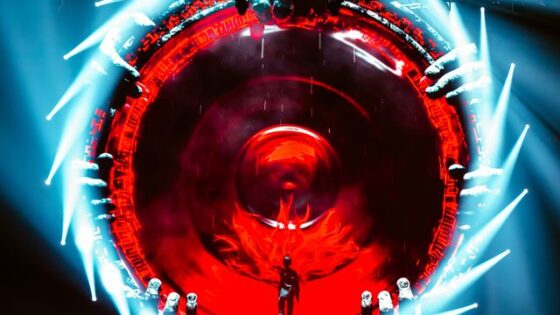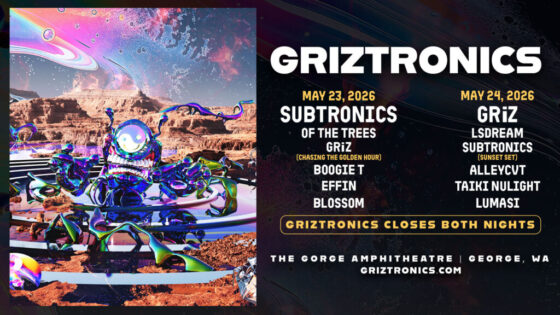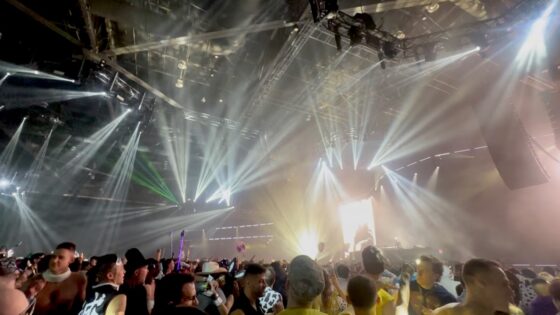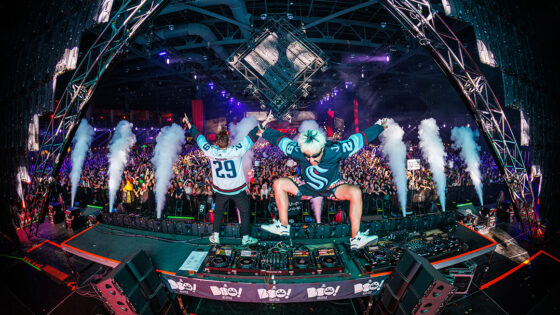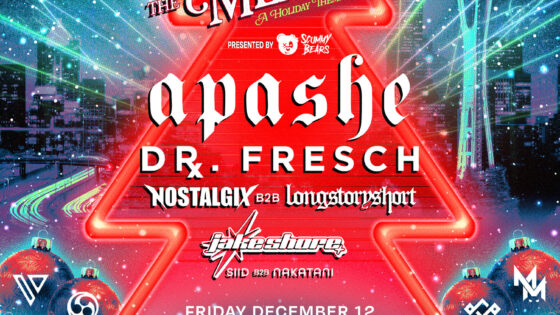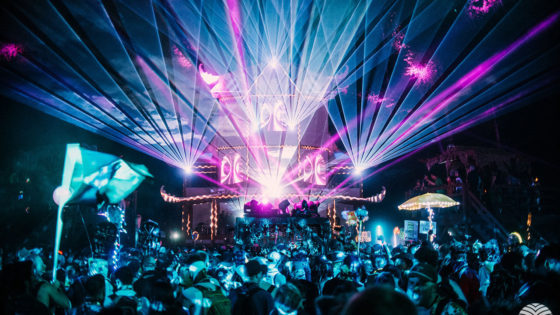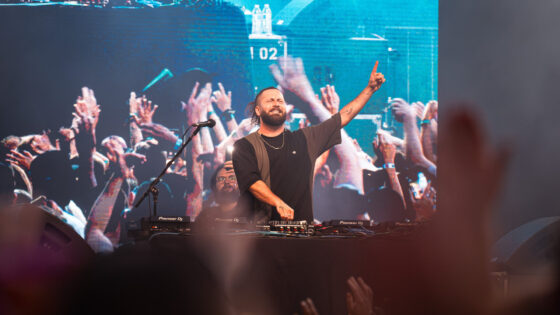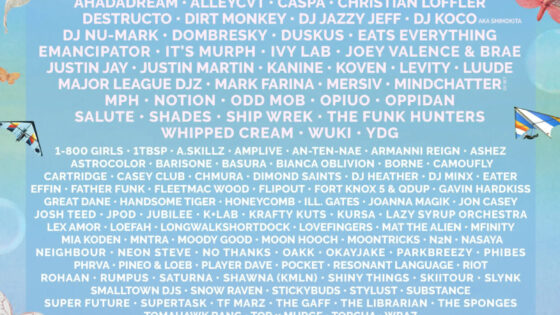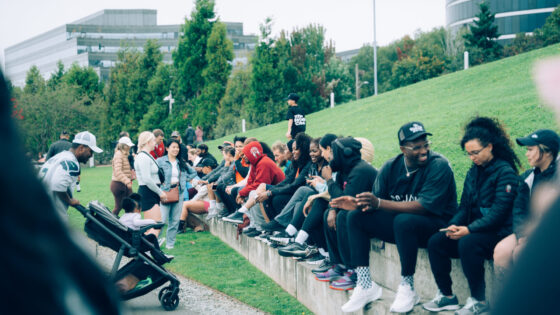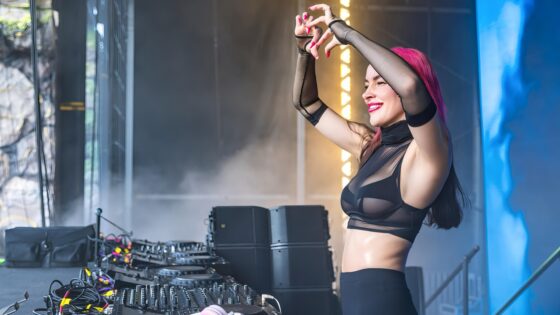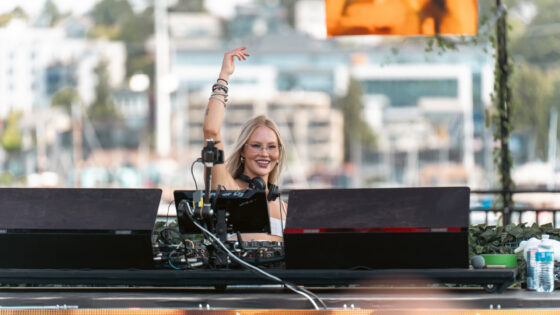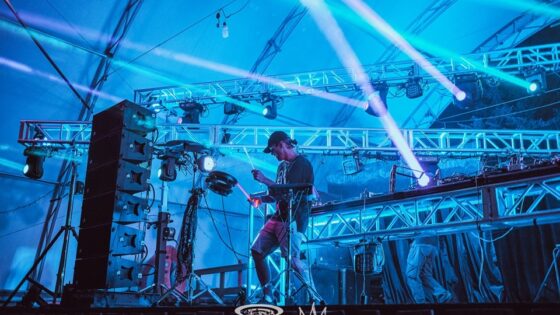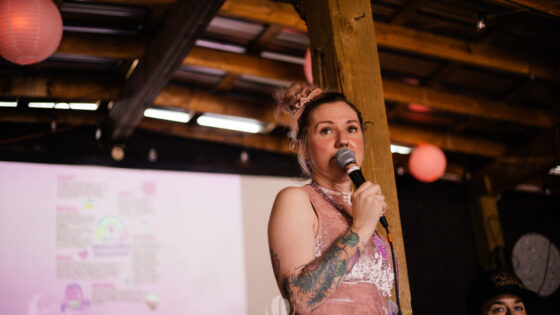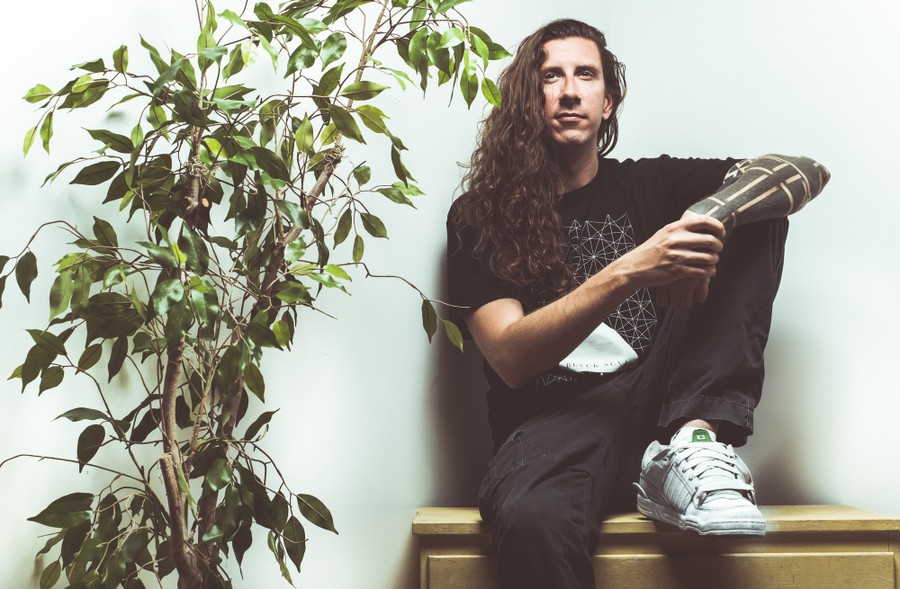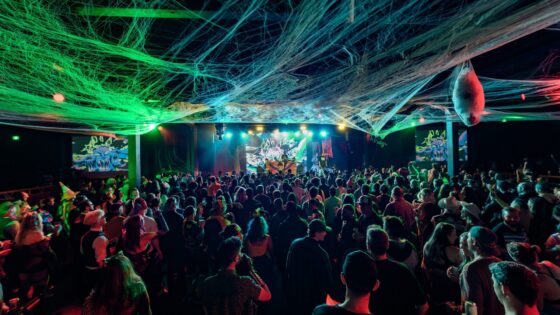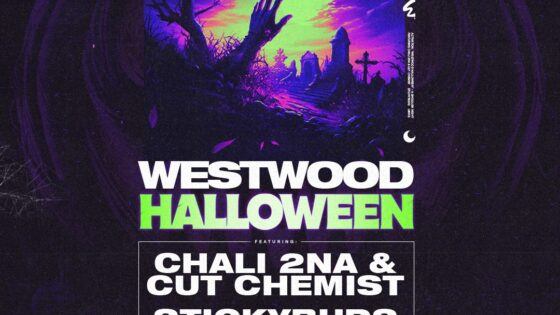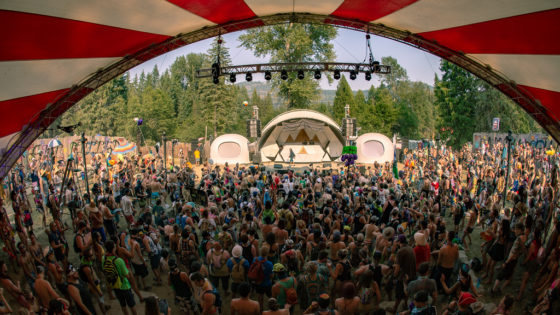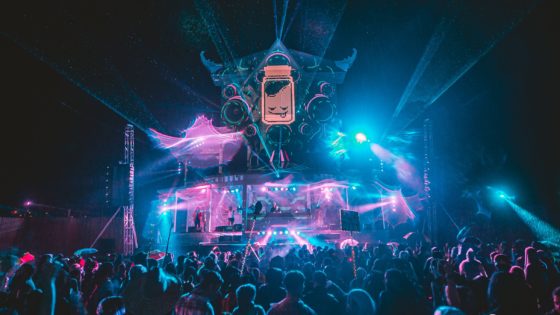There’s no doubt that PNW artist Tyler Martens, aka Stickybuds, has had a long and illustrious career in electronic music. He’s worked with some of the biggest names in the reggae genre, has a residency in Fractal Forest at BC’s Shambhala Music Festival, and has been to over 25 countries throughout his twenty-year career.
We were fortunate enough to catch Stickybuds in his spare time and chatted about his beginnings, the future of electronic music with the advent of AI, and what’s happening next for him.
DMNW: Can you tell us about your musical background and how you got started in the music industry?
Stickybuds: Well, I’ve been [in the industry] for almost 20 years now. I guess my background is being a raver and going to lots of parties in the late 90s, starting to go to festivals like Shambhala, and things like that. Then, I moved to Edmonton briefly after high school and went to parties, but I didn’t know what I wanted to do with my life.
It was suggested that I check out this music school in Kelowna called the Centre for Arts and Technology. So I went there and learned how to produce records. Long story short: I ended up being one of the top students there and they hired me as a teacher. After I graduated, I taught there for five years. That was when I became Stickybuds and taught myself how to DJ, mix records, and produce records.
During my first year in 2005, I put out a mixtape called Body Breaks. There was a local crew here in Kelowna called Liquidbeat who threw underground raves. They gave me a shot and I played a couple of their parties. Then, my friend Toddy Rockwell threw an event called Higher Ground at Sapphire (now re-named Distrikt Nightclub) and he gave me a residency there.
That same first year, I kind of got pushed forward. Rich-E-Rich gave me a chance and put me in Shambhala at the Fractal Forest stage. I DJed the first year and I played every year since for the last 15 years, but I missed last year. And then, I worked my butt off over the last two decades making records, playing parties, and doing what I love.
That sounds like quite the history! How do you approach the creative process when making music? Do you have any particular methods or techniques?
A lot of the songs I make have value and meaning in the lyrics. The last album I made had a lot of social issues tuned into it. And a lot of reggae music and the producers I work with are very conscious and I like the messages they put forward.
You’ll hear songs like Crooked Politicians and 99% in my last album (Take a Stand, 2018). Usually, songs start with an idea of what I want to put forth in the music. From there, I’ll usually write drum and bass lines and then I’ll start working with session musicians and vocalists. I’ll either write lyrics and send [the vocalists] demos of me singing terribly and they’ll redo the lyrics with their amazing skills, or, they’ll have ideas and we’ll go back and forth. It’s just a building process to create something awesome.
You’ve collaborated with a variety of artists throughout your career. Can you talk about some of your favorite collaborations and what you’ve learned from working with those artists?
One would be my friend K+Lab from New Zealand. He and I have written a ton of songs together. And, he’s a dude that’s a lot like me: very passionate about music. We’re the same but totally different and have always jived well working together. I think working with K+Lab is great. We always are putting ideas forth and cutting the weakest parts out and building on each other’s strong suits. We’ve always made such rad stuff together.
The other would be Mista Savona, who’s a really amazing reggae producer from Australia. I hit him up in like late 2009 and 2010 for his track Clean Air Clean Country, which he did with Burro Banton on the Fire Dragon Riddim EP. So, it took me two years of pestering him to send me that vocal and song to remix into the version that I played in Shambhala in 2011. I’m also doing some brand new stuff with him right now.
I’m also finishing a song for Chali 2na and Cut Chemist. Those are two of my early heroes, and I’m producing a drum and bass song for them right now, featuring Dynamite MC on it.
I’ve just had so much exposure through amazing remixes for reggae legends like Sizzla Kalonji and doing songs with Burro. Also, I’ve done a lot of work with other reggae musicians like Rubi Dan. Another artist is Blackout JA; I’ve done so much stuff with him over the years. He was the voice of my Shambhala mixtapes for a long time.
So what’s the process of collaborating like for you?
My favorite thing about the process is manifesting ideas into the world. You have an idea and you can just create it. You can take something from a thought in your head into the real world. Then it’s tangible, and you created this finished song that you set out to make. It’s such a rewarding process.
But, you need to be able to push yourself to make things happen because none of those things will magically appear. You have to be very driven to write emails and put yourself forward.
My homey Ed Solo, who’s another hero of mine, is a drum and bass legend. I reached out to him, probably in 2010 or 2011, with this bootleg tune I made. I said, “Your label Jungle Cakes is the only place that’s releasing songs like this – what do you think?” And he replied, “Well, it’s not quite good enough. But send me all the pieces, and I’ll make it better.”
Then we released it. And it was my first song on Jungle Cakes called Stickybuds Guaranteed.
A year or two later, I contacted him and said I’ll be touring in Europe. I asked if we can hang out and make some music, and he said, “Yeah, come stay at my house for a week.”
We made a record together. If you would have told me that opportunity would be possible at the start of my career when I bought his solo vinyl and never talked to him… And suddenly I’m staying at his house making music and eating dinner with him and his wife. All those things just happen from putting yourself out there and making opportunities happen.
My stepdad told me a long time ago, “If you don’t ask, you don’t get,” and it’s a good reminder to put yourself out there. You need to be a nice person to work with, and you want to be someone that people want to work with.
That makes a lot of sense. It’s like making a resume: writing about yourself is hard, but you have to do it. You have to try your best and two years is a long time to ask someone to use their music. That’s pretty persistent.
And then, that turned into a decade-long friendship! Since then, I’ve worked with Jake and Ed on probably six or seven records together over the years now. It was really good for Mista Savona too! The remix I did of Clean Air Clean Country got his name and song into the entire Shambhala world, and it was a very popular remix.
People still ask me about that song and we’ve done so many things since. So it was good for everybody. But yeah, it was a real, real pleasure to work with him.
You’ve performed at festivals and events around the world. Do you have any memorable experiences that stand out to you?
I mean, there’s been so many. Shambhala will always be my home and the most important place that I’ve grown and performed.
Playing at Glastonbury in the UK and Burning Man are also memorable. People ask you, “What’s your favorite place to play?” or, “What stands out?” but for me, it’s always been this ongoing adventure. Every place has its merits and crazy things that are part of the travel or how it all goes down.
I’m always just so grateful to have DJ’ed in 25 countries. I’ve probably played at 40 festivals in Australia, New Zealand, Hong Kong, 10 countries in Europe, and all over North America. They’re all cool, you know. I’m just really grateful to be able to hop on a plane and share what I love with people all over the planet. We’re always treated so well, it’s great.
Yeah, I just love sharing what I do with people.
So with the advent of AI and how that’s coming into music, how do you see the future of electronic music evolving with that? And where do you see yourself fitting into that landscape?
The tools have been constantly improving before this big push in the last couple of months with Chat GPT. Now, you have these foundations to base all these new products off of. There were already programs that you could pick a key and a feel and it would write you a chord progression. These automated workflows that have drastically sped up time and stuff have always been around.
But, I think it’s great, and I fully embrace technology. I haven’t had time to start using it yet, but I had a chat with Chat GPT. I asked, “What’s the most popular chord progression?” And it spat it out. Then I asked, “Write me that chord progression in E minor and give me all the notes.”
After it gave it to me, I was like, “Okay, now – make it more jazzy.” And it switched a bunch of the notes and it gave me this progression. And then I eventually programmed it into Ableton, and it sounded like shit to me. So, I don’t know if it was right.
I imagine it will get better, but I didn’t have time to verify it. Another time, I asked Chat GPT, “What’s the chord progression of James Brown’s I Feel Good” and it spat it out. I didn’t have time to verify but it’s cool that you can ask these questions and get answers. They’ll only get better and more accurate as time goes on.
I think that humans like relating to humans. So, when it comes to AI and automating out things: I think the white collar jobs, accountants, data entry, and things where all you need is information is where it’s gonna go far. And it will help with these tools of automating certain parts of music.
For instance, right now, I’m writing a song called Family Man and it will be one of my next singles. It’s all about the feelings of having my child and becoming a father. Those are the feelings that I wanted to imbue into the music. And maybe AI can somewhat figure out what those feelings are, but I don’t think it will ever truly know, because it’s not a human.
View this post on Instagram
And then, can humans relate to the ideas that AI puts forth? Maybe, but I still think that people are going to want to enjoy art and culture with other humans. So, I don’t get worried about AI replacing music, performance, and culture. Not yet. Who knows what humans will want and strive for in the future, but I’m fully down with it.
Music theory has never really been my strong suit. I understand pitch and I understand music well inside my brain. I understand keys, and music theory to a rudimentary level. But to go in-depth in it, that takes me a long time.
So for me to go to Chat GPT and be like, “Give me a jazzy chord progression in E minor and write out all the notes. Write a bridge and give me all the notes in the bridge.” To me, that would take me so long to do, so for it to be almost instant is amazing.
I know there are already programs that you can do what I just said about Chat GPT, but you can put it in a program and it will just write the song for you like with the sounds and you know, with the syncs and everything. You can just say, “Oh, that sounds down like *beep*: retry!” and it just does it all again.
I’ve always made music that for the most part has a point, that has a story to it. I don’t usually just put out music that has no meaning to it. So I think that humans will strive or lean towards music with meaning as AI stuff comes out.
I think humans will value that more, maybe? I don’t know. That’s kind of my take on it at the moment, though.
Basically, it’ll take away the more difficult aspects for the individual, but then you can still put your human soul and feelings into it, is what you’re saying?
Totally. Yeah, exactly.
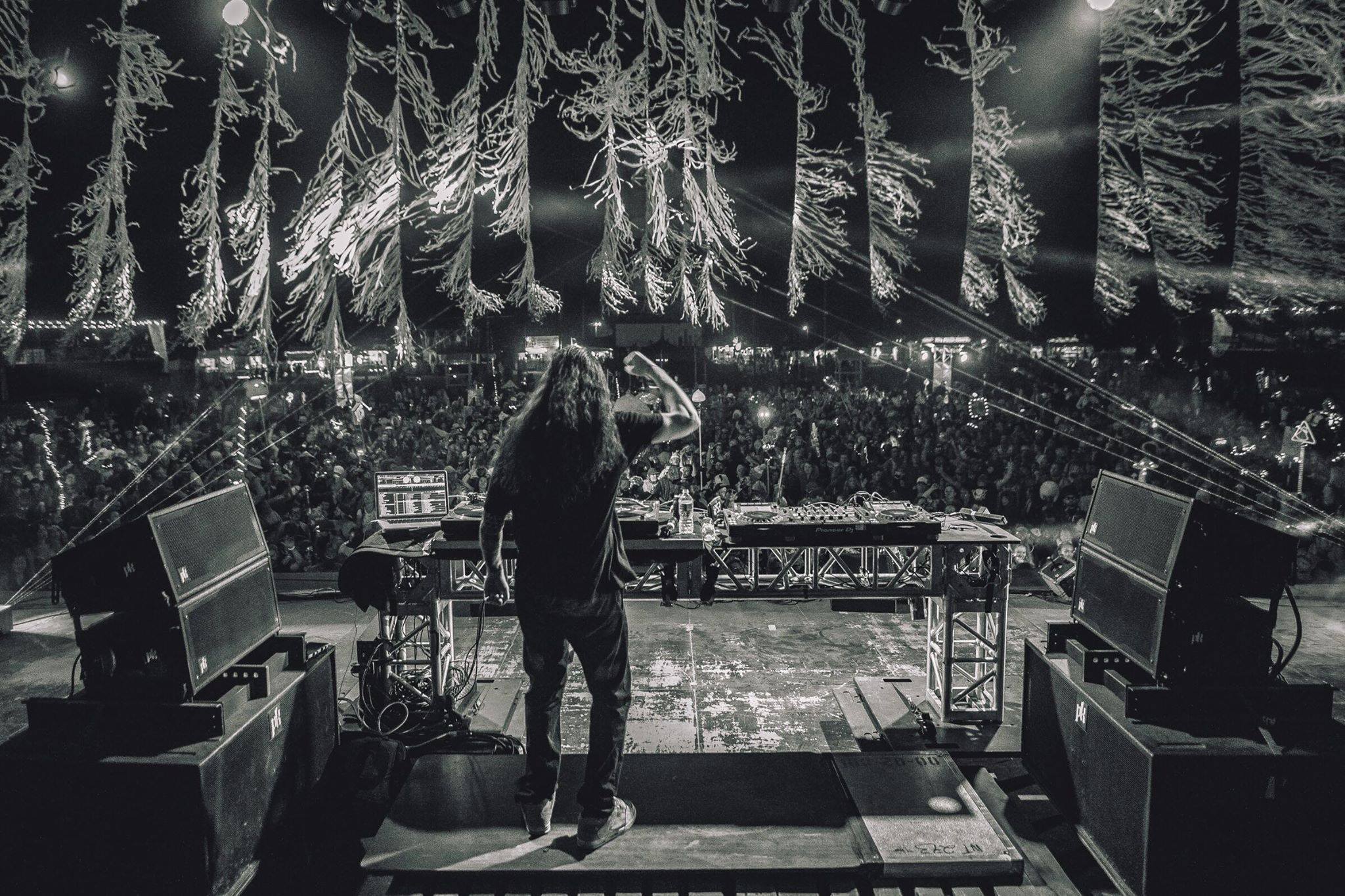
Photo Credit: Banana Cam Photo (https://www.bananacamphoto.com/)
When’s that new single of yours, Family Man, coming out?
Probably not until summer, just because I’m being picky about it. I recorded it with Glen Andrews, who’s the guy who’s singing on Feel the Weight, which is one of the last songs I put out. It’s full of session musicians and super funky and all that.
So, that’s going to come out on Westwood, probably in the summertime. So, I’m making an EP and writing lots of music right now. But I wasn’t quite happy with it yet to release it, so I’m still working on it. I needed to get this other Chali 2na song done.
Are you working on a new album? It sounds like you might be.
The goal this year was to release an EP later this summer, like three or four tracks. I haven’t written much in the last two years. It feels nice to be getting back and exploring some new ideas. There’s a bunch of vocalists I’ve been wanting to work with. So there’s a whole bunch of sticks in different fires and I’m just seeing what’s bubbling up and coming out. I’m going to be releasing a lot of music in the next year or so.
I’d like to do an album again, but also, writing an album – it’s just so crazy. You’re doing so much work and then it’s just packaged up at once, and you put it out into the world. And it’s almost like, people pay attention to it as much as just releasing one song. They go to your album and they kind of click through, maybe with their biases of what kind of music they like. And they’re like, “Oh, I like this one”.
This is opposed to just releasing singles, where it’s just one song, so pay attention to this one idea. Even if you just get them to listen to that one idea, it’s a win, with 100,000 songs coming out every day on Spotify (or whatever their crazy number is). So I like releasing singles at the moment to put those ideas out.
Maybe they’ll be part of a broader body of work at a later date. And that’s kind of the trend in music now to release three singles and then put out the EP with four or five songs on it, and you release the last two at once. And then they’re all part of one.
But yes, music’s on the way for sure.
What are some challenges that you’ve overcome, that have become your greatest learning experiences?
Well, COVID, for sure. COVID and the terrible government policies behind it just completely devastated our entire industry. So basically, everyone had to completely pivot their lives in electronic music. All of us make our living from touring, so when touring got completely slashed and every venue, festival, and performance closed for two years, it was a massive blow to the industry.
So from that, I started streaming, which I didn’t think I was going to do. But, my friend Dunks from The Funk Hunters had already embraced it. And he’s like, “You’ll be good at it because you like lots of different kinds of music and you’re good at tech, so you can figure it out.”
So I started running hard at it. And if you look on my YouTube channel and look up episodes of Different Strains, you know, by the end of the final 33rd stream I arguably had one of the most advanced streams in the world.
I had a full-time animator, illustrator, and computer programmer who were programming APIs into my Twitch stream to do things that no one else was doing. I built a full movie studio in my house and my fiancé was operating all the camera angles, like front and above camera angles, and a full green screen studio.
At the end [of doing the stream series], people could log in and create avatars and dance in the stream. They could change the tempo that they were dancing, and do dance moves and stuff. And it was really cool. We ended up moving and decided to leave Canada for a while, and we moved to Paraguay. So I stopped all the streaming when we did that.
COVID was terrible, but I learned so many new skills and and overcoming the challenges and pivoting super hard to keep it going. It was really good for our mental health, my mental health and my fiancé. Every week, hanging out online with everyone, bringing the music and doing all this cool stuff. For all the fans too, 300 to 500 people would tune in every week and in jam out with us and it was it was special.
Do you have any plans to stream again?
No. *laughs*
I just don’t have the room. You know, we moved into this new house when we moved back from Paraguay to Kelowna to have our kid. We have a new space and Kelowna is drastically more expensive than living in Calgary where we were, so I have drastically less space. Now that I have a kid, there’s even less space, so I don’t quite have the movie studio that I used to, nor do I really have the desire. There’s some people who have kept streaming and everything, you know, and it’s cool. And there’s some people where that really became part of their identity.
For me, it was a means to an end of providing entertainment and hanging out with my fans, doing cool stuff and pushing the boundaries of what we did on Twitch. But now that I’m playing shows again, I much prefer playing real shows to real humans. It was so much work doing Different Strains… I made a Stickybuds set every single week, which is ten to twenty hours of engineering to make all the mixes really cool.
At the same time, I was developing new immersive realities, like all the backgrounds and everything with my animators. There was also learning how to program cool things so that everything was moving. And it was so, so, so much work. I’ll probably never do that again. But it was a good chapter in the history of it all.
Lastly, what advice would you give to aspiring musicians who are trying to make it in the music industry?
I think if you’re not genuine in your own beliefs in what you think is cool, your taste in music, and whatever you appeals to you and what you want to do. Like, if you can’t cut your own path and do something, as an individual, you’re just one one stick out from the crowd. And you probably won’t have longevity because your soul will just be not as happy as if you embraced what you really care and believe in. So, it may be daunting to some people because I’ve never played to the trends: there’s always trends in electronic music, things that are cool, and “blah, blah, blah”.
I’ve basically been playing more or less the same kind of stuff for 20 years. As well as making the same kind of things that I like for not quite 20 years, because I’ve only really been producing records for ten to twelve years.
I just think and especially as more and more as AI comes out, like we were talking about, it’ll become so easy to put content out, generate ideas and things like that. I think the only way that you will be able to stand out is having some kind of individuality that has something that people can grasp onto and pay attention to.
Give people a reason to care about whatever you’re doing. So yeah, just be be true to yourself – that’s the number one thing. Be a good person, don’t let ego and all the nonsense cloud your judgment. Just be a good person and do what’s good.
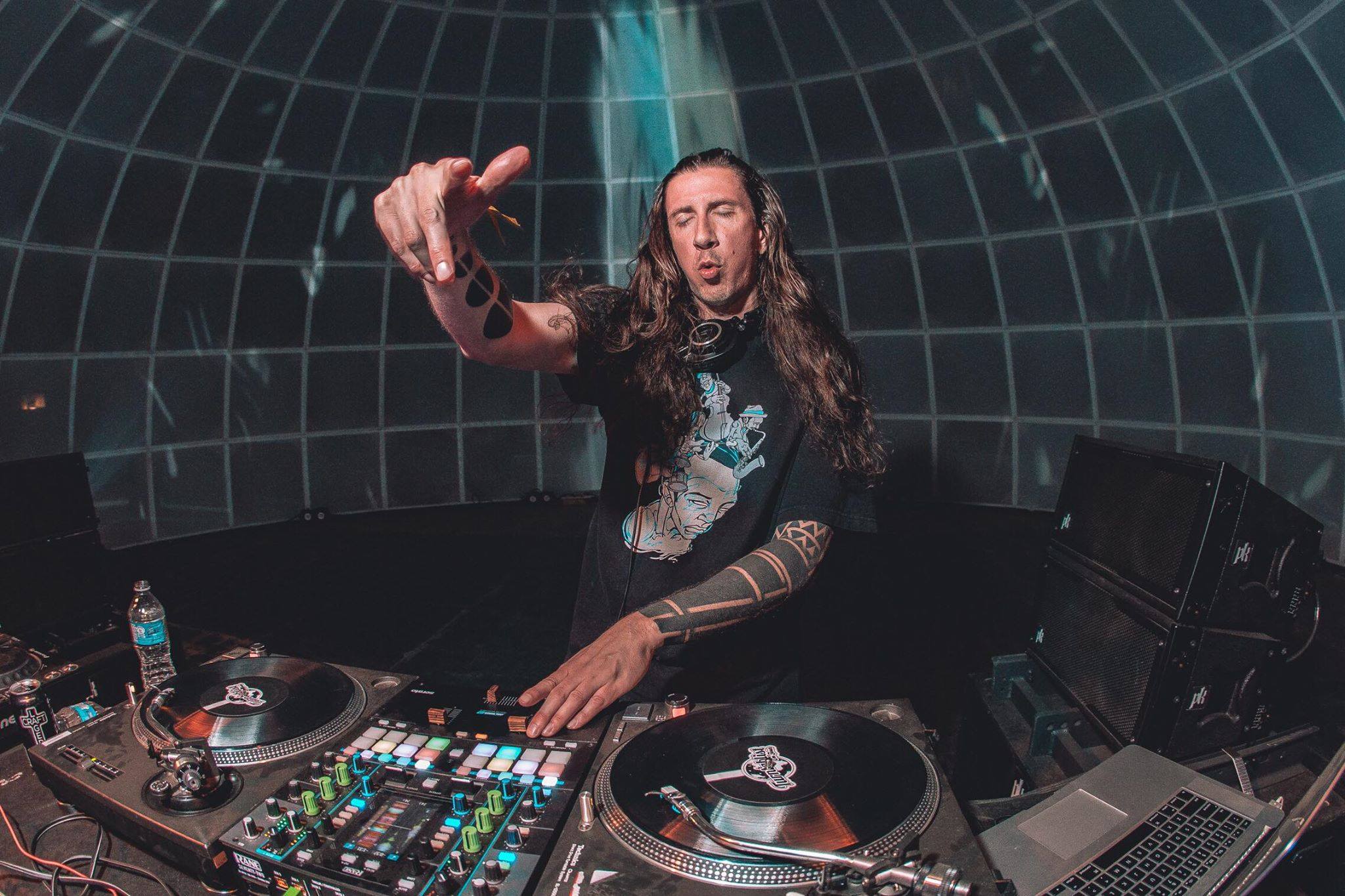
Photo Credit: Banana Cam Photo (https://www.bananacamphoto.com/)
Catch Stickybuds this summer during his carefully curated summer tour schedule. Stops include Victoria’s Ska & Reggae Festival, Imagine One Love Festival and of course, Shambhala Music Festival.
Now that Stickybuds is back in Canada, we’re hoping to see him throw more events as often as possible – it’d be especially amazing if his legendary Breaks-O-Ween event made a comeback as well. The last one was held in 2017, and was unfortunately put on hiatus after he moved out of the country.
Check out Stickybuds’ socials, Bandcamp and Patreon below to keep up on any upcoming music releases and tours.
Website: Stickybuds.com/
Facebook: www.facebook.com/Stickybuds
Instagram: @Stickybuds
Bandcamp: Stickybudsmusic.bandcamp.com/
Important things happen in Pacific Northwest nightlife, and DMNW will send you alerts!

